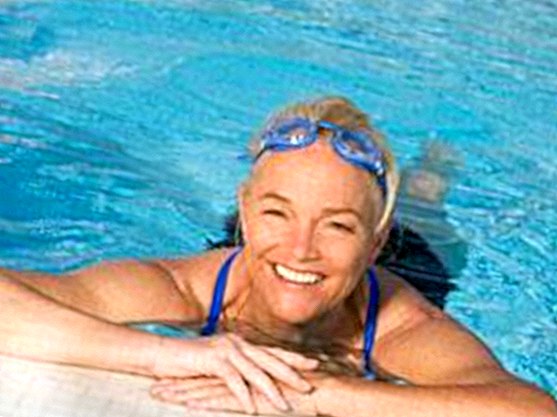How sport helps with cancer


Photo: Image Source / Corbis
Sport not only improves the quality of life of cancer patients, it can also increase the chances of curing tumors. Regular training is therefore important in cancer, says Professor Martin Halle, Medical Director Preventive and Rehabilitative Sports Medicine at Klinikum rechts der Isar, TU Munich.
Strengthen wellbeing with sport
A cancer diagnosis is a shock to everyone. From one moment to another you become a patient. The planned therapeutic measures then quickly push those affected into a passive role. On top of that, while oncology treatments aim to improve health, first of all, it worsens well. Even those who have felt healthy up to this point will be significantly affected by the side effects of surgery, chemo- and radiotherapy. Almost all cancer patients suffer from their performance deteriorating and they feel tired and exhausted. Through sports activities they can counteract this, maintain their performance and improve their well-being. This strengthens their self-confidence in this difficult life situation. Sport also helps to accept your own body again, to make friends with it again? despite the disease. And finally, sports in the context of cancer therapy is the only measure that patients themselves can actively take in hand. So everyone can do a part to make him feel better. Many sufferers feel even better than before the illness.
Sport can improve prognosis
Sports activities not only positively affect the well-being of cancer patients, they can also improve the prognosis of the tumor disease. In breast and colorectal cancer, studies have shown that standard therapy works better when affected women and men also do sports. The chances of recovery are demonstrably increased. The recidivism rate is reduced by 50 percent. Those who are regularly active can significantly reduce the risk of recurrence of a recurrent tumor. Further studies on these interesting results are currently in progress. But science can already say today: There is no alternative to sport.
Especially inactive before
Those who have not done any sports until their cancer diagnosis benefit the most from a change in their lifestyle, even more so than those who have always been active in sports. That too has been shown by studies. And nobody is too sick to do sports. It is important that the dose and the type of stress are adapted to the respective state of health. But then, the sicker the patient, the more he benefits from the sport. Above all, if sufferers start training right after the diagnosis, they can clearly gain in quality of life.
Only stress shows success
If you really want to achieve positive effects, you have to make an effort. Only climbing stairs instead of driving an elevator or walking alone are not enough. Many doctors are still too cautious in their recommendations for cancer patients. In rehabilitation clinics and cancer sports groups too often the soft factor is emphasized too much.
Decisive for the success, however, are the intensity and duration of the physical stress. It is important that the body consumes a corresponding amount of energy. This, as studies have shown, is best achieved through endurance sports such as walking, jogging, cycling and swimming. Patients benefit from training, for example if they go briskly every day for at least three quarters of an hour. You should already start to sweat. The undershirt may be wet, but you should still be able to talk during the walk. A corresponding calorie conversion can be achieved by at least 20 to 30 minutes of jogging, 30 minutes of cycling? also on an ergometer? or swim for three quarters of an hour. There is no upper limit, as long as you feel comfortable. If you like, you can supplement this endurance program with other sports and physical activities such as yoga and strength training. If complaints occur or fatigue increases, however, these are warning signs. The burden could then be too strong, the immune system could be weakened, which would be fatal, especially in the case of cancer. In this case, the training must be reduced and adjusted accordingly.
Slow increase brings fast noticeable success
Sports entrants and debilitated cancer patients will probably initially have problems providing the recommended intensity and duration of training. Nevertheless, they should start training as early as possible, ideally before a planned cancer operation. To do this they should, with the help of their attending physician or a sports medicine specialist, determine the initial stress individually and then increase it slowly and continuously.As a rule of thumb, one training session per week should be extended by one minute. This will give you the optimum duration and intensity for your own sports program after two to three months. It is also important to harmonize the training both with the measures of cancer therapy and with the personal limitations of the person concerned. For example, a breast cancer patient should not scratch while swimming. Again, the attending physician can give recommendations. If you are taken into account, sport is no obstacle.










